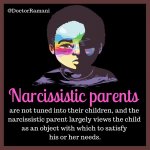David Baxter PhD
Late Founder
What Happens To People In Relationships With Narcissists
By Lenora Thompson, HuffPost Canada
July 17, 2017
Bizarre. Immature. Spoiled. And ?that? smirk that says, ?Ohc?mon. It wasn?t that bad.Your[wife,husband, father, mother, grandparent, sibling] meant well. Their cruelty was an isolated incident. A blip on the screen. Perhaps they had gas. Maybe they were having a bad day or were mad about something at the office. Have you no empathy for them!?! You should?ve forgiven them, not gone No Contact!?
As a survivor of narcissistic abuse, you?ve heard these remarks and seen the ?Shame on you!? smirk too many times. Usually, it?s followed by a soliloquy about how much the other person loves their family and how they couldn?t live without them. Yada, yada, yada. Shame, shame and more shame... as if we needed more shame and false guilt. Heavens! We?re drowning in it.
Eventually, you may give up talking about your (ex) family entirely because trying to convince anyone of the severity of narcissistic abuse is like trying to nail the proverbial Jell-O to the proverbial wall. Impossible and invalidating!
The reason it?s so difficult is because most episodes of verbal narcissistic abuse, taken as isolated incidents, are forgivable. It?s the sum total that isn?t.
It may take years, decades or a lifetime before the cumulative effect of all the separate, small episodes of verbal narcissistic abuse hits us. But when it does, kaboom! That?s the day we go No Contact.
To those who haven?t experienced narcissistic abuse, our ?nasty? attitude towards the narcissist(s) in our life may indeed appear bizarre, immature and... what was that last word? Oh, spoiled. Yeah, spoiled.
But the ?vast cloud of witnesses? who also survived narcissism ?have your back.? They understand where you?re coming from, in the words of Gregory Peck, ?in to-to.? To them, you are inspiring! A courageous survivor. A good person who turned the other cheek (two or four, depending on how you?re counting) over and over again until you simply couldn?t take the pain anymore.
The thing that makes narcissistic abuse so slippery is that, apart from physical abuse and sexual abuse, each separate incident of verbal abuse was forgivable. Maybe we shouldn?t have forgiven, but we did anyway. Boy! How we forgave! You?ve forgiven ?seventy times seven? and so have I.
I forgave when my father stood in front of me, surveyed my OCD-ravaged skin, grimaced horribly and turned away without looking me in the eye nor speaking a word.
I forgave when my mother took one look at a gorgeous black suit I was trying on in the fitting room and said, ?You look too good in that. You can?t have it. Put it back on the rack.?
I forgave when my mother said to my twenty-something self, ?I?m glad you?re not married so you can?t get pregnant.?
I forgave when my mother sounded shocked that I was actually going to drive my own car to my own new house? yes, on the forbidden highways at forbidden highway speed.
Those are just four bizarre, hurtful incidents out of hundreds. But I forgave each time, perhaps because they were so shockingly bizarre. I forgave and forgave and forgave. And so did you!
Because between each weird and hurtful incident, there may have been days and weeks of relative peace. Oh, you always had a knot in your gut when your narcissist was around. You preferred solitude. You were always waiting for the next ?constructive criticism,? the next insult to come your way. But each incident was forgivable. It must?ve been because you stayed and you forgave.
It was when you took a step back that the big picture came into focus. You?d been living amongst the trees so long, you couldn?t see the forest. Now, you can.
You see the Big Picture and it?s unforgivable. And you see each isolated incident and realize they too were unforgivable. They weren?t blips, gas, stress or isolated incidents. They were the crux of narcissistic abuse.
But try communicating that to anyone who hasn?t lived it! I?d rather sit in my closet and apply thumbscrews. They?d be less painful. Unless your audience has lived narcissistic abuse, they simply won?t ?get it.? They?ll rationalize each separate incident as ?for your own good,? a miscommunication or an idiosyncrasy on the part of the narcissist.
But you and I know better.
Even as, yet again, shame for being a bad person who abandoned their sweet, loving, kind, generous family threatens to engulf us, we must stand fast. We must stand in our truth. Unwavering. Because we know what we know. We know what we?ve lived. We remember it verbatim. We see the big picture ? even if our friends, spouses, children or even siblings think we?re nuts.
On those days when you feel, yet again, like you are the problem and are tempted to break No Contact to return to the bosom and love-bombing of your cult, uh, I mean family, here?s a simple trick that sounds silly but works a treat.
If you do nothing, you can?t make a mistake. Try it. It?s worked for me many times!
You?re not bizarre. You?re not immature. You?re not spoiled. You?re NOT the problem. Narcissistic abuse is made up of hundreds and thousands of isolated incidents that richly deserve a verdict of No Contact. Frankly, it?s a marvel we didn?t see the ?forest? before and didn?t vamoose long ago. That goes to show how loving, caring, flexible, resilient and good we really are!
You are sane. You are strong. You are incredibly forgiving. Remember that when anyone implies otherwise. Stick to your guns and stay No Contact!
By Lenora Thompson, HuffPost Canada
July 17, 2017
Bizarre. Immature. Spoiled. And ?that? smirk that says, ?Ohc?mon. It wasn?t that bad.Your[wife,husband, father, mother, grandparent, sibling] meant well. Their cruelty was an isolated incident. A blip on the screen. Perhaps they had gas. Maybe they were having a bad day or were mad about something at the office. Have you no empathy for them!?! You should?ve forgiven them, not gone No Contact!?
As a survivor of narcissistic abuse, you?ve heard these remarks and seen the ?Shame on you!? smirk too many times. Usually, it?s followed by a soliloquy about how much the other person loves their family and how they couldn?t live without them. Yada, yada, yada. Shame, shame and more shame... as if we needed more shame and false guilt. Heavens! We?re drowning in it.
Eventually, you may give up talking about your (ex) family entirely because trying to convince anyone of the severity of narcissistic abuse is like trying to nail the proverbial Jell-O to the proverbial wall. Impossible and invalidating!
The reason it?s so difficult is because most episodes of verbal narcissistic abuse, taken as isolated incidents, are forgivable. It?s the sum total that isn?t.
It may take years, decades or a lifetime before the cumulative effect of all the separate, small episodes of verbal narcissistic abuse hits us. But when it does, kaboom! That?s the day we go No Contact.
To those who haven?t experienced narcissistic abuse, our ?nasty? attitude towards the narcissist(s) in our life may indeed appear bizarre, immature and... what was that last word? Oh, spoiled. Yeah, spoiled.
But the ?vast cloud of witnesses? who also survived narcissism ?have your back.? They understand where you?re coming from, in the words of Gregory Peck, ?in to-to.? To them, you are inspiring! A courageous survivor. A good person who turned the other cheek (two or four, depending on how you?re counting) over and over again until you simply couldn?t take the pain anymore.
The thing that makes narcissistic abuse so slippery is that, apart from physical abuse and sexual abuse, each separate incident of verbal abuse was forgivable. Maybe we shouldn?t have forgiven, but we did anyway. Boy! How we forgave! You?ve forgiven ?seventy times seven? and so have I.
I forgave when my father stood in front of me, surveyed my OCD-ravaged skin, grimaced horribly and turned away without looking me in the eye nor speaking a word.
I forgave when my mother took one look at a gorgeous black suit I was trying on in the fitting room and said, ?You look too good in that. You can?t have it. Put it back on the rack.?
I forgave when my mother said to my twenty-something self, ?I?m glad you?re not married so you can?t get pregnant.?
I forgave when my mother sounded shocked that I was actually going to drive my own car to my own new house? yes, on the forbidden highways at forbidden highway speed.
Those are just four bizarre, hurtful incidents out of hundreds. But I forgave each time, perhaps because they were so shockingly bizarre. I forgave and forgave and forgave. And so did you!
Because between each weird and hurtful incident, there may have been days and weeks of relative peace. Oh, you always had a knot in your gut when your narcissist was around. You preferred solitude. You were always waiting for the next ?constructive criticism,? the next insult to come your way. But each incident was forgivable. It must?ve been because you stayed and you forgave.
It was when you took a step back that the big picture came into focus. You?d been living amongst the trees so long, you couldn?t see the forest. Now, you can.
You see the Big Picture and it?s unforgivable. And you see each isolated incident and realize they too were unforgivable. They weren?t blips, gas, stress or isolated incidents. They were the crux of narcissistic abuse.
But try communicating that to anyone who hasn?t lived it! I?d rather sit in my closet and apply thumbscrews. They?d be less painful. Unless your audience has lived narcissistic abuse, they simply won?t ?get it.? They?ll rationalize each separate incident as ?for your own good,? a miscommunication or an idiosyncrasy on the part of the narcissist.
But you and I know better.
Even as, yet again, shame for being a bad person who abandoned their sweet, loving, kind, generous family threatens to engulf us, we must stand fast. We must stand in our truth. Unwavering. Because we know what we know. We know what we?ve lived. We remember it verbatim. We see the big picture ? even if our friends, spouses, children or even siblings think we?re nuts.
On those days when you feel, yet again, like you are the problem and are tempted to break No Contact to return to the bosom and love-bombing of your cult, uh, I mean family, here?s a simple trick that sounds silly but works a treat.
- Sit down.
- Hold very still.
- Wait until the feeling leaves you.
If you do nothing, you can?t make a mistake. Try it. It?s worked for me many times!
You?re not bizarre. You?re not immature. You?re not spoiled. You?re NOT the problem. Narcissistic abuse is made up of hundreds and thousands of isolated incidents that richly deserve a verdict of No Contact. Frankly, it?s a marvel we didn?t see the ?forest? before and didn?t vamoose long ago. That goes to show how loving, caring, flexible, resilient and good we really are!
You are sane. You are strong. You are incredibly forgiving. Remember that when anyone implies otherwise. Stick to your guns and stay No Contact!






